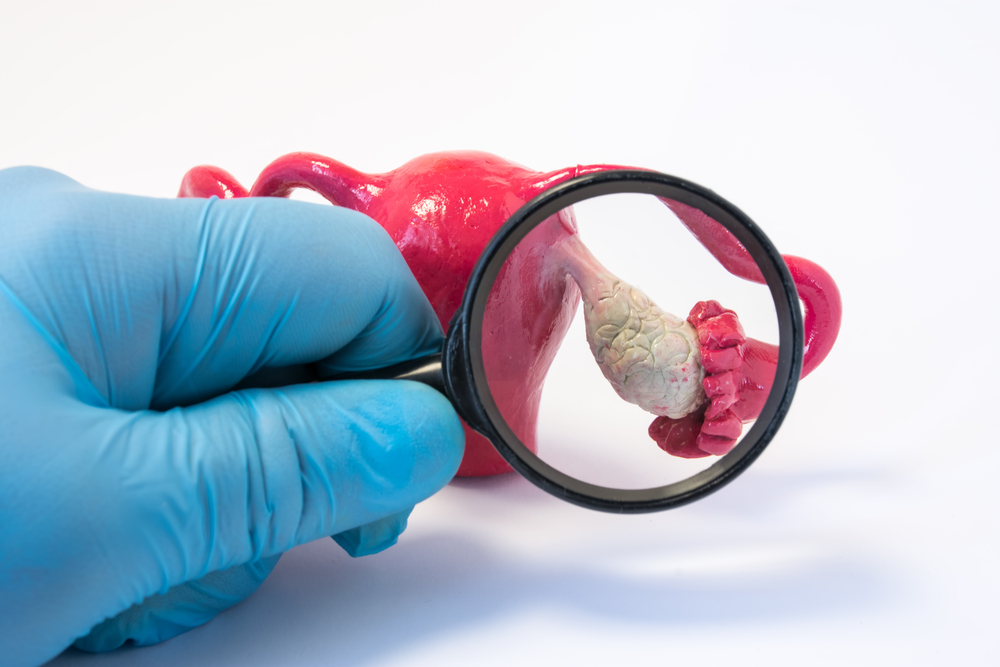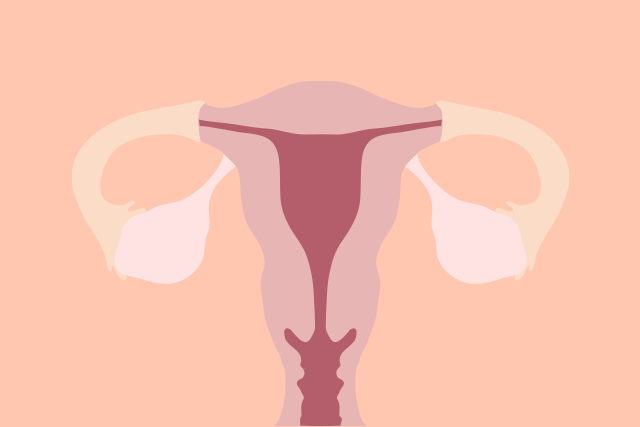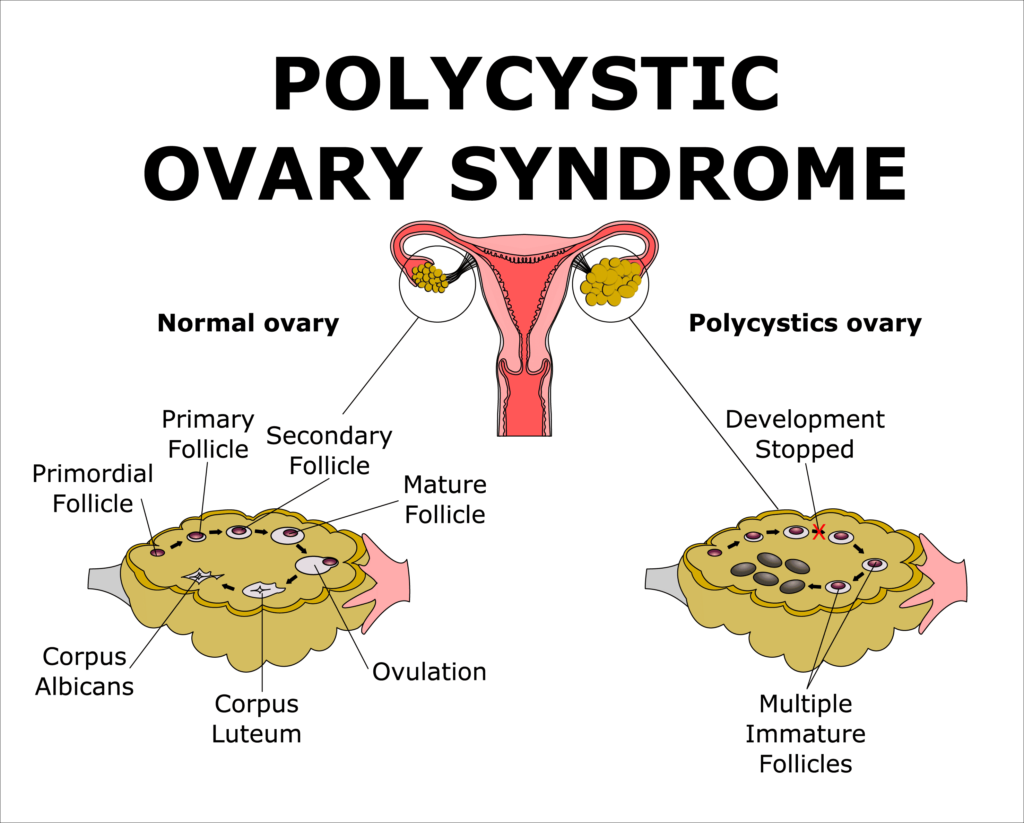Wellness
PCOS 101: Everything You Need To Know About Polycystic Ovary Syndrome
Almost 1 in every 10 women of childbearing age has PCOS: Polycystic Ovary Syndrome. Those affected by it know that...
By: / June 8, 2020

Almost 1 in every 10 women of childbearing age has PCOS: Polycystic Ovary Syndrome. Those affected by it know that they experience hormonal imbalance and metabolism problems. However, sadly, many women out there are still unaware of the fact that they might be having PCOS. Hence, Beauty Insider has put together this article to spread awareness of PCOS. Also, if you do have PCOS, we want you to know that you are not alone ❤️

Contents
What is PCOS?

PCOS is a problem with the hormones that affect women during the ages of childbirth (ages 15 to 44) Almost 2.2 to 26.7 percent of women in these ages have PCOS, but most of them do not know they have it.
PCOS affects your ovaries and reproductive organs that are responsible for producing progesterone and estrogen, which are the hormones that regulate your menstrual cycle. Not only that, but sometimes your ovaries also produce a small number of male hormones that are known as androgens.
In PCOS, there will be many small, fluid-filled sacs growing inside your ovaries. Which brings us to the word “polycystic”, which means many cysts. These sacs that are growing in your ovaries are in fact follicles, each one of these sacs contains an immature egg that was never mature enough to trigger ovulation.
When you ovulate lesser, the levels of estrogen, progesterone, FSH and LH start altering. The levels of estrogen tend to be lower than usual, while the levels of androgen are higher than the usual amount. Not only that, but extra male hormones also disrupt the menstrual cycle, hence why women with PCOS get fewer periods than usual.
Additionally, PCOS is not a new condition, as an Italian physician, Antonio Vallisneri was the first to describe this symptom in the year 1721.
What causes PCOS?

An actual cause of PCOS has not been diagnosed, however, these are a few factors that play a role:
- Excess insulin. The insulin is a hormone that is produced in the pancreas that allows your cells to use sugar, which is your body’s primary supply. When your cells become resistant to the action of insulin, your blood sugar levels then rise and your body tens to produce more insulin. Excessive insulin may sometimes increase the production of androgen, causing difficulties with ovulation.
- Low-grade inflammation. This is when the production of your white blood cells fights infection. Women with PCOS have a type of low-grade inflammation that stimulates the polycystic ovaries to produce androgens that leads to blood vessel and heart problems.
- Excess androgen. When the ovaries produce abnormally high levels of androgen, that results in hirsutism and acne.
- Genes. Studies have shown that PCOS runs in families, hence, the condition may be passed down.
What are the symptoms of PCOS?
- Irregular periods. The lack of ovulation prevents the uterine lining from shedding every month. In some cases, women with PCOS get lesser than eight periods a year.
- Heavy bleeding. When your uterine lining builds up for a longer period of time, your periods tend to get heavier than the normal ones.
- Hair growth. Most women with this condition grow hair on their face, body, backs, belly and chest. this condition is called hirsutism.
- Acne. The male hormones can make your skin much oilier than usual and that may cause breakouts on your face, chest and upper back.
- Weight gain. Most women with PCOS are overweight or obese.
- Male-pattern baldness. The hair on your scalp tends to get thinner and fall out.
- Darkening of the skin. You will notice dark patches of skin forming on your body creases like on your neck, groin area and under your breast.
- Headaches. The hormone changes that are happening can trigger headaches in some women.
How does PCOS affect your body?
- Infertility. To get pregnant, you would have to ovulate, and women who don’t ovulate regularly do not release as many eggs to be fertilised.
- Metabolic syndrome. Up to 80 percent of women who have PCOS are either overweight or obese. The combination of obesity and PCOS can increase the risk for high blood sugar level, high blood pressure, low HDL (good cholesterol) and high LDL (bad cholesterol). Together, they increase risks of heart diseases, stroke and diabetes.
- Sleep apnea. This condition causes repeated pauses in your breathing during the night, which interrupts your sleep. Also, this condition is more common in women who are overweight, especially if they have PCOS.
- Endometrial cancer. As you don’t ovulate every month, your lining builds up without shedding. Hence, a thickened uterine lining can increase the risk of you having endometrial cancer.
- Depression. Both hormonal symptoms and changes like unwanted hair growth may affect your emotions negatively.
- Nonalcoholic steatohepatitis. This is a severe liver inflammation that is caused by fat accumulation in the liver.
- Abnormal uterine bleeding
- Gestational diabetes or pregnancy-induced high blood pressure
- Miscarriage or premature birth
- Type 2 diabetes or prediabetes
How is PCOS diagnosed?
Usually, doctors diagnose PCOS in women who have at least two of these three symptoms:
- high androgen levels
- irregular menstrual cycles
- cysts in the ovaries
Other than that, your doctor will also ask you whether you have symptoms like acne, face and body hair growth and weight gain. A pelvic examination will also help identify problems with your ovaries or other parts of your reproductive tract. During the examination, the doctor will insert gloved fingers into your vagina to check for any growth in your ovaries or uterus.
Also, blood tests will be taken to check for usually higher male hormones. During that time, you will also have to blood tests taken for your cholesterol levels, insulin and triglyceride levels to evaluate risks for other medication conditions.
Additionally, an ultrasound may also be used as the sound waves are used to look for abnormal follicles and other problems with your uterus and ovaries.
What are some diet & lifestyle tips to treat PCOS?
- Lose some weight. Losing 5 to 10% of your body weight helps regular your menstrual cycle and improve PCOS symptoms.
- Go on a well-balanced diet. A low-carbohydrate diet is effective for both weight loss and lowering insulin levels. Also, a low glycemic index diet gets most of their carbohydrates from fruits, vegetables and whole grains. That helps regulate your menstrual cycle.
- Exercise. Studies have shown that 30 minutes of moderate-intensity exercise thrice a week helps women with PCOS lose weight.
When should you see a doctor?
You should schedule an appointment to see the doctor when:
- You’ve missed periods and you’re not pregnant
- You have symptoms of PCOS, like hair growth on your face and body
- You’ve been trying to get pregnant for more than 12 months but have not been successful
- You’ve noticed symptoms like diabetes, excess thirst or hunger, blurred vision, and unexplained weight loss.
















